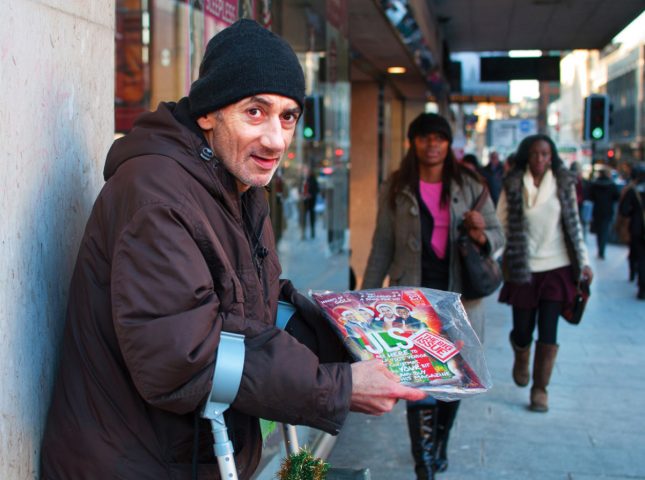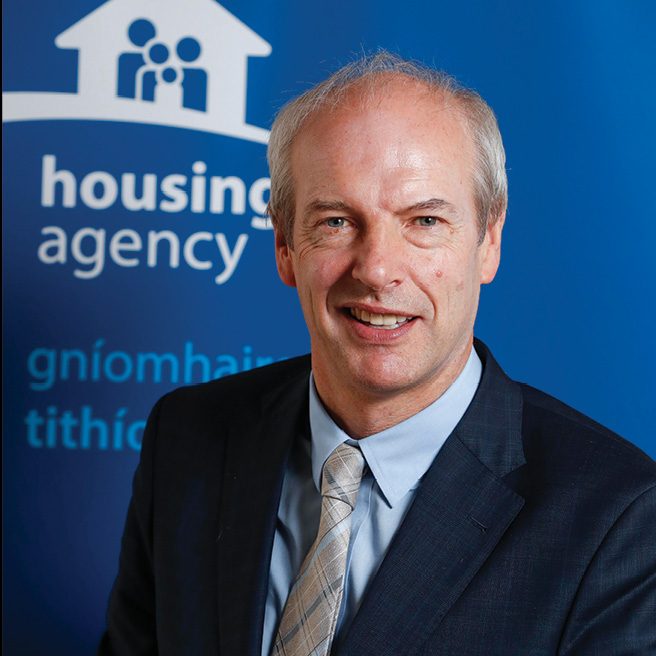
Navigating Financial Risk
19th July 2017
Social housing funding models
19th July 2017Tackling the homelessness challenge in Dublin

A pilot Focus Ireland campaign, developed to help families who are at risk of homelessness, has confirmed that 90 per cent of participants were still in tenancies three months after the initiative got underway. Underpinning the programme was a comprehensive spread of support measures, provided by Focus Ireland.
Focus Ireland believes that, if extended to other high risk areas, this approach could prevent hundreds of families entering homelessness.
The campaign was a five week pilot programme aimed at the families renting in Dublin 15, where previous research by Focus Ireland found that a large proportion of families had previously been renting.
The key to the project was the partnership formed between Focus Ireland and the Department of Social Protection’s Blanchardstown Intreo Office. This office addressed a letter written by the charity to all families in receipt of rent supplement in Dublin 15, urging them to seek support if they were worried about losing their homes.
The letter asked people at risk to contact Focus Ireland, who then put them in touch with the range of supports that now exist for families at risk of homelessness.
Focus Ireland Director of Advocacy Mike Allen says: “The results of the pilot project are impressive. First of all, the direct mail from the Department of Social Welfare was overwhelmingly more effective than our extensive advertising and media campaign, with over 95 per cent of respondents saying it was the reason they contacted us.
“Of the 87 families who were at risk of homelessness at the time of first making contact with Focus Ireland, a total of 89 per cent, or 77 families, were still in tenancies when we contacted them for the follow up survey three months later.
“However, 11 per cent had become homeless and found themselves in emergency accommodation. We linked these families in with the Focus Ireland Family Support Services.”
Allen adds: “To prevent homelessness there is a need to get a strong message to families who are stressed out and trying not to think about the crisis they are in. Most campaigns have relied on adverts, which only have limited impact.
“The Department of Housing and the local authorities have now put in place a range of supports to help people in difficulty. However, people often don’t hear about these until it is too late.
“The Department of Social Protection know where many of the at-risk families live. However, until now, this knowledge has not been used as part of a communication campaign to ask them to seek help.
“This approach works. Approximately, 75 per cent of the families that contacted them had not contacted any State-supported prevention service prior to responding to the letter.”
The campaign saw trained Focus Ireland homeless prevention workers provide a fast-track targeted service by telephone, email and face-to-face clinic meetings to ensure that every possible step was taken to keep families in their homes.
Staff supported families to challenge notices of termination, and assisted others to get an increase in their rent supplement from the Department of Social Protection. According to Focus Ireland, many did not know that such an increase was possible. Families whose tenancy could not be saved were supported to source alternative accommodation or link-in with other Focus Ireland services.
This approach works. Approximately, 75 per cent of the families that contacted them had not contacted any State-supported prevention service prior to responding to the letter.
The final report on the pilot project found that, of those who were effectively prevented from becoming homeless, 82 per cent remained in the same tenancy, while 18 per cent had found new tenancies.
Dublin 15 is among one of the fastest growing urban areas in Ireland with a large number of households which are privately renting and in receipt of rent supplement. The Focus Ireland report highlights factors which lead to increased numbers becoming homeless. These include low incomes, rising rents and a reluctance to increase the Rent Supplement or Homeless Assistance Payment levels.
Meanwhile, Francis Doherty, Head of Communications at the Peter McVerry Trust, has welcomed the commitment signalled by the Government to tackle the homelessness crisis. He confirms that that the Rebuilding Ireland strategy flagged up homelessness as one of its five core pillars, adding: “This is only a beginning. Essentially, the government must seek to tackle the core issue of preventing people from falling into the trap of homelessness in the first place.”
According to Doherty, the trust is currently dealing with 4,705 unique individuals on an annual basis.
“Back in 2008, the figure was 308. In terms of the people that we work with the gender breakdown is 74 per cent male: 26 per cent female,” he says. “We are active in Dublin, Kildare and Limerick.
“The Trust was established in 1983 with a focus on homelessness, social disadvantage and drug misuse.”
Doherty says that 6,847 individuals are actively seeking emergency accommodation at the present time. This includes almost 3,000 adults and families with almost 2,500 children.
“There are also an unknown number of people sleeping rough and no records are kept of the hidden homeless,” he adds.
Doherty is keen to highlight the profile of those who are homeless in Ireland at the present time. Up to now, this cohort has included single males, who left school early and are unemployed.
“Also included are those with addiction problems, those leaving state care institutions and people caught in the poverty trap. Fundamentally, all of these people have complex needs,” he explains.
According to Doherty, this profile is changing as people from a more middle class background trickle down into homelessness in the wake of the economic crash.
“Youth homelessness is also on the increase,” he says.
The current figures include 3,203 children and youths, aged 24 and under.
“These are highly vulnerable people and the challenge of homelessness will have a lasting impact on them.”
Doherty relates a number of new approaches to homelessness that are currently under development by the McVerry Trust.
“A case in point is our Housing First initiative,” he says. “This focuses on the immediate provision of long-term and permanent accommodation for the homeless with supports and services subsequently built around the needs of each individual.
“The Housing First model differs significantly from the treatment first approach first taken by other support strategies. These work on the basis that a homeless person must deal with issues that gave rise to their homelessness, or have arisen as a result of homelessness, before they are ready for long-term accommodation.”
Doherty says the Housing First project will target rough sleepers initially. “However, it will be broadened to include those in shelters,” he adds.
Doherty is calling for radical rental reform in Ireland. “The Trust is very concerned that continuing to allow the market to determine the cost of renting will only push more individuals and families into homelessness,” he says.
“There is also an onus on the government to invest in mixed tenure communities. Everything possible must be done to reduce social fragmentation.
“The Government must also do all it can to tackle the root causes of homelessness. Poverty and inequality within our society go to the heart of the problem. The response from the Government must reflect the need for improved educational and health care facilities.
“Providing improved training and employment opportunities will also be required. We also need a national response from government: not one that is Dublin-centred.”
He concludes: “To successfully tackle homelessness, we need to combine our responses to the current crisis while directly addressing the root causes of the problem. Nobody should be homeless for more than two weeks!”






